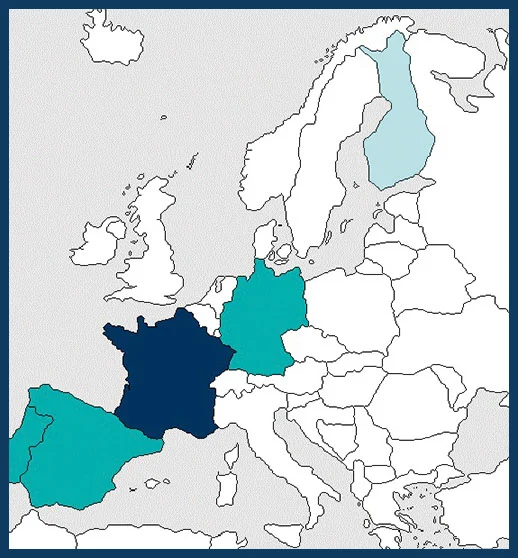01-2017 to 12-2019
€ 1,190,453
Dr. Arndt Hampe
arndt.hampe@inra.fr
INRA, Cestas, FRANCE (Coordinator)
European Forest Institute, Joensuu, FINLAND
INRA, Avignon, FRANCE
Unique Forestry and Landuse GmbH, Freiburg, GERMANY
University of Hohenheim, Stuttgart, GERMANY
Instituto de Ciências e Tecnologias Agrárias, Vairão, PORTUGAL
CREAF, Barcelona, SPAIN
Museo Nacional de Ciencias Naturales, Madrid, SPAIN

Forests play a key role in the EU Biodiversity Strategy 2020. European policy strongly supports the afforestation of former farmlands but has to date largely neglected opportunities for passive landscape restoration. Spontaneous forest establishment is occurring in many parts of Europe following the widespread abandonment of agricultural land use. This process can contribute to the creation of multifunctional, diverse landscapes, yet it is often regarded rather as a challenge than an opportunity for landscape management and conservation.
The project will aim to elucidate the potential of spontaneous forest establishment as a cost-effective and politically feasible tool for reinforcing networks of self- sustaining forests in fragmented rural landscapes.
Concretely, the project will address three major questions:
1. How do new forest patches establish?
2.Which consequences does the establishment process have on their character and functioning?
3.Which ecosystem services do they provide, and how are they perceived and managed by local societies and political governance systems?
Five case studies in Mediterranean and temperate landscapes will be submitted to a combination of ecological and sociological investigations. The case studies involve contrasting socio-economic contexts ranging from the greater metropolitan area of Barcelona to sparsely populated mountain areas. Forest establishment will be investigated drawing on a broad spectrum of approaches including dendroecology, population genetics, functional ecology, remote sensing, and landscape analysis. Its societal implications will be assessed using standardised surveys and in-depth expert interviews with stakeholders and policy makers.
The project will organise a “Synthesis for Policy Application” workshop in Brussels that will translate into a jointly elaborated special issue on spontaneous forest establishment in an international policy-oriented environmental or forest science journal. Moreover, a BiodivERsA policy brief will be edited to support the outputs of the project.